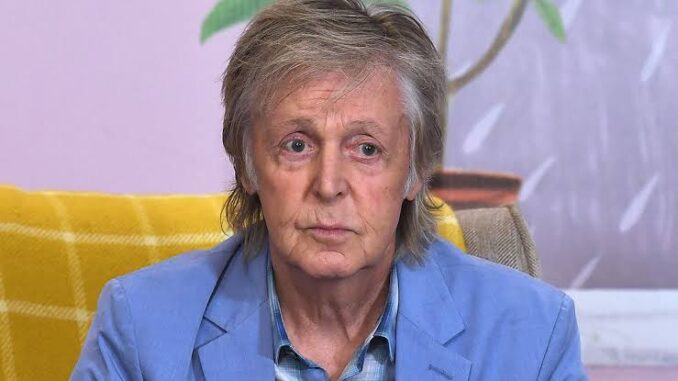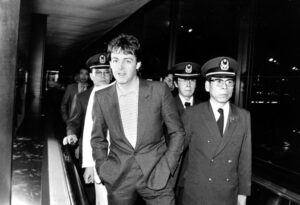
Paul McCartney Recounts His Worst and Deadly Experience in a Japanese Jail After Marijuana Arrest
In January 1980, Paul McCartney — one of the most famous musicians in the world — stepped off a plane in Tokyo expecting to begin a tour with his band Wings. What he did not expect was that within minutes, he would be arrested and thrown into a Japanese jail, igniting what he would later describe as one of the most harrowing and humiliating experiences of his life.

McCartney arrived in Tokyo with his wife Linda and the rest of Wings for a planned 11-city concert tour across Japan. The anticipation was high. Japan was a major market for the band and for McCartney personally, and it was the first time he had been allowed into the country after being denied entry in 1975 because of prior drug offenses. For fans and promoters alike, this was supposed to be a triumphant return. Instead, it quickly turned into a scandal.
As McCartney’s luggage passed through customs at Narita International Airport, Japanese officials discovered approximately 219 grams (around half a pound) of marijuana hidden in one of his bags. For Japan, a country with famously strict drug laws and zero tolerance policies, the discovery was not a small offense. It was a serious criminal matter. McCartney was immediately arrested on charges of drug possession and taken into custody.
What followed was nine days of incarceration in a Tokyo detention center. The arrest shocked the world and dominated headlines. Back in Britain, the press erupted with speculation. In Japan, there was outrage, confusion, and embarrassment among concert organizers and government officials. For McCartney, the experience quickly turned into a psychological and emotional trial unlike anything he had faced before.
In later interviews, McCartney would reflect on those nine days with a mixture of disbelief, anxiety, and humility. He described the conditions as extremely tough. He was kept in a small, cold cell with minimal furnishings. The language barrier made communication nearly impossible. Guards and inmates alike were not necessarily impressed or starstruck by his fame. To them, he was simply another foreigner who had broken their law.
Each day, McCartney was woken up early and subjected to a strict routine. He ate rice and miso soup. He spent long hours sitting in silence, trying to meditate or keep himself mentally focused. There were no instruments, no books, no distractions. For a man used to constant motion, creative expression, and adulation, the sudden isolation was overwhelming.
What made it worse was the uncertainty. At the time of his arrest, possession of such a large quantity of marijuana could have carried a sentence of up to seven years in prison. Although McCartney insisted that the drugs were for personal use, Japanese authorities were not quick to show leniency. He later said that during those first few days, he genuinely believed he could spend years behind bars.
McCartney’s wife Linda was not arrested, although she had previously faced drug charges in other countries alongside him. She was released and left to manage the chaos from the outside. Their four children were back home in England. The Wings tour was immediately canceled, resulting in a financial disaster for the organizers and a major blow to McCartney’s reputation.
Public reaction was mixed. Some fans expressed sympathy and viewed the arrest as overblown. Others criticized McCartney for his carelessness and arrogance in bringing drugs into a country known for its rigid drug laws. In Japan, especially, the incident became a major cultural flashpoint and threatened to damage relations between McCartney and the Japanese public permanently.
After nearly ten days of legal negotiations, pressure from diplomatic channels, and public apologies, Japanese authorities released McCartney without pressing formal charges. He was deported immediately. In later years, McCartney said he was immensely grateful for the decision and admitted that he had been foolish to bring the marijuana in the first place.
The incident marked a turning point for McCartney in more ways than one. Although he had long been open about his marijuana use and had even been arrested multiple times for it in the past, the Japanese jail experience sobered him. It strained his relationships within Wings, contributed to the eventual disbanding of the band, and cast a long shadow over his public image.
Even decades later, when asked about the lowest points in his life, McCartney frequently cites those nine days in a Tokyo jail. Not only because of the fear and discomfort he endured, but because it forced him to confront the consequences of his choices more directly than ever before. It was, in his own words, a wake-up call.
In the end, Paul McCartney left Japan humbled and shaken. He would eventually return to perform there again many years later, but the memory of that dark episode never fully left him. It remains one of the most infamous moments in the life of a man whose career has otherwise been filled with global triumphs and musical brilliance.